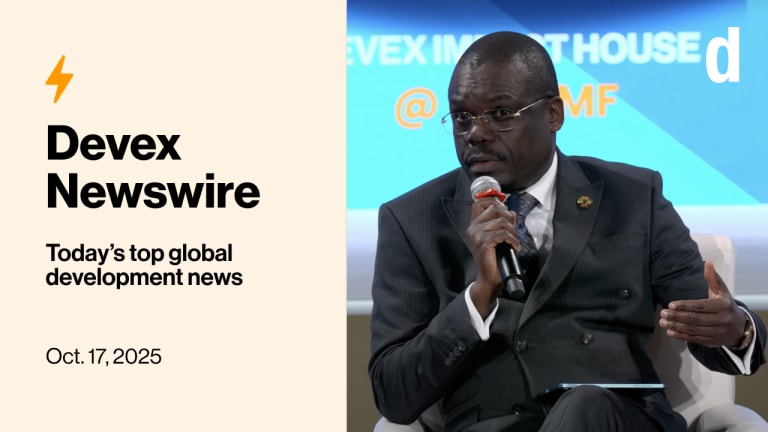At a moment of reckoning for European development cooperation, two veteran voices — Germany’s former Federal Minister for Economic Cooperation and Development Heidemarie Wieczorek-Zeul and Enabel CEO Jean Van Wetter — joined Devex for a candid conversation on the future of aid in Europe.
The conversation was part of a Devex Pro event focused on looming budget cuts, geopolitical shifts, and the upcoming 4th International Conference on Financing for Development, or FfD4, in Seville, Spain.
Their message was clear: Traditional aid is no longer sufficient, but neither is the growing turn toward purely strategic or private sector-led engagement. Instead, both called for a reimagined model — one that uses traditional development players to encourage private investment, resists the erosion of global solidarity, and reinvents development as a tool for shared global interest.
This story is forDevex Promembers
Unlock this story now with a 15-day free trial of Devex Pro.
With a Devex Pro subscription you'll get access to deeper analysis and exclusive insights from our reporters and analysts.
Start my free trialRequest a group subscription







